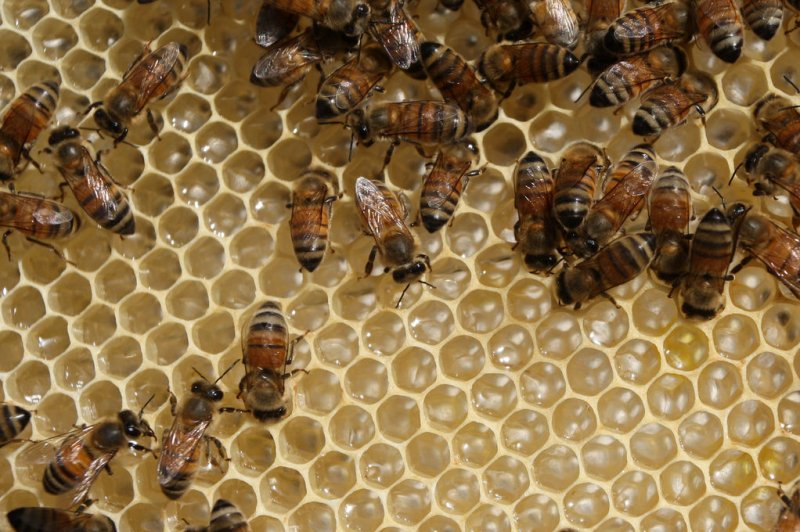BLACKSBURG, Va., Aug. 8 (UPI) -- A number of studies have shown the harmful effects of a class of pesticides called neonicotinoids, but beekeepers use a variety of other types of pesticides thought to help bees by ridding their hives of parasites and associated pathogens.
A new study suggests these seemingly beneficial pesticides may be harming bees' gut microbiota, the community of microbes that help bees and their digestive system metabolize sugars and peptides.















